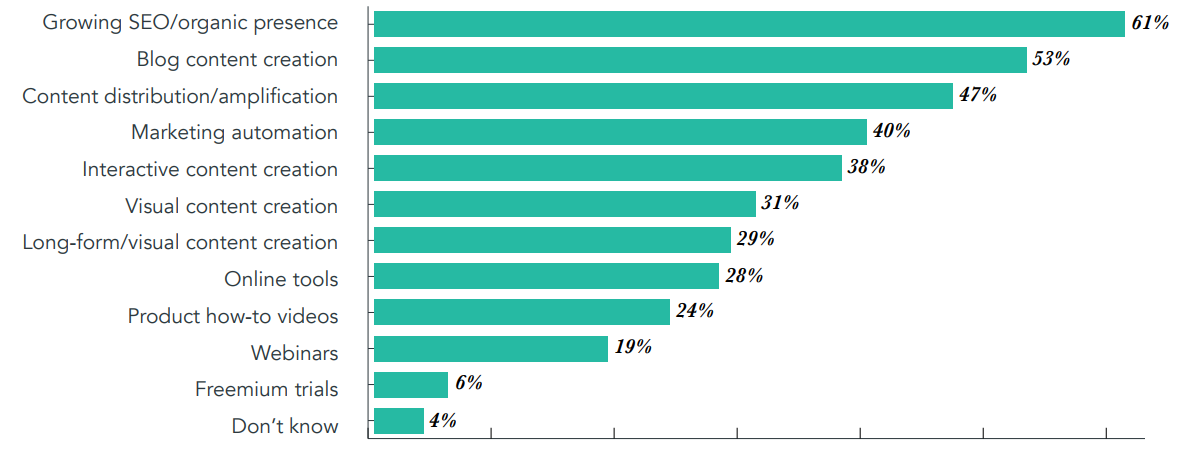Though SEO is about free marketing, it’s really not that free. You have to spend money, attention, and effort. Attention and efforts can also translate into money if you hire someone to do it. Again, you need to buy or rent tools, contents, resources, etc. For some aggressive companies, this free marketing strategy can become quite expensive. So how do you decide how much to spend on SEO?
Like other marketing strategies, spending on SEO is also coined as an expense by many businesses. It’s rarely thought of as an investment and treated just as another digital marketing channel. However, the fact is, SEO is a part of a long-term strategy that becomes a part of your asset. SEO may not be a part of your physical asset, but it empowers your other assets. So, it’s really not an expense; it’s a part of your investments.
The Profitability Formula
At year-end, most businesses come up with balance sheet calculations on liabilities, equities, and assets. Equity can be revenue, profit, earnings, etc. that hugely affects your profitability. And liability can be various expenses that can’t be reused.
The usual formula of your balance sheet looks like this:
Asset = Liability + Equity
But, the most important thing for your growth is, Equity = Asset – Liability
Translation: each time you grow your asset, your equity also grows, but your liabilities eat up your equity. Your assets may not necessarily be liquid. So, the mantra is to keep investing more in assets, while you reduce your liabilities.
So, does the expense of SEO build assets or does it burden you with liabilities?
SEO Spending, Expense or Asset?
Assets may not be liquid by nature. E.g. your website, contents, copyright materials, etc. are all your assets. And based on the previous formula, anything that increases the value of your assets will eventually add up to your equity. It really translates into growing equity. SEO as a strategy increases the value of your website. Site farming or flipping is based on selling your site at a higher rate. And the secret sauce for site farming is mostly based on SEO. So, the next time you think SEO does not increase your assets, think again. Decide how much to spend on SEO is right for you.
PPC, on the other hand, is like you-get-what-you-pay-for. But, for SEO, you get more than what you pay for. It has reusable future benefits. And the amount of future benefit is also unpredictable. So, in this sense, PPC can be a marketing expense or liability, but not SEO.
If you run multiple PPC Campaigns, you might have realized that Search Campaigns have higher conversion rates. This might help you to convince that searches work better than other strategies. Mainly because it ticks all the marks in the “Right Message to the right people at the right time” formula.

With a strategy so right for the growth of your business, it can’t be an expense.
When you’re spending on SEO, you are really spending on huge potential. And the potentiality is much higher than PPC. Data shows that 16% of the people who land on a SERP (Search Engine Result Page) after searching a keyword actually click on ads. But in a recent 2016 study by Similarweb, this number got reduced to 5.05%.

Image Source: https://www.smartinsights.com/wp-content/uploads/2016/05/Paid-vs-Organic.png
If you are spending more on PPC to get those 5.05% clicks, then you are eating the smallest piece of the pie, while your organic competitors are enjoying the bigger share. Since PPC is more of an expense, you should slice off some fund from PPC to build your assets by investing more in SEO.
The State of Inbound 2017 study by Hubspot has collected 6,000+ responses from various companies. And the majority (about 61%) of the companies have prioritized their effort on SEO and growing their organic presence.

Image Source: Snapshot from https://cdn2.hubspot.net/hubfs/53/assets/soi/2017/global/State%20of%20Inbound%202017.pdf?t=1512171168621
Most SEO specialists will tell you that SEO should never be your only channel for marketing. But, how can this get so much priority over others? How much to spend on SEO then? Most companies consider SEO spend as an investment, not as an expense. This totally flipped mindset helps companies to re-think their spending on SEO.
One issue that discourages this idea is that SEO declines overage. So does every asset and sometimes they can become obsolete. E.g. business machines like typewriter are no longer a business asset in many companies. Assets are perishable, so why not SEO?
Another argument is: sometimes SEO spending can get wasted and you may need to spend more to revive rankings. In this sense, SEO spending is an expenditure. Do not invest in weak efforts, otherwise, all your investment for SEO will turn into expense and will eat up your equity and assets.
SEO is a superpower that makes your company stronger over a long period of time. It increases the value of your business, which is worth investing more money, attention, and efforts. But, be sure to invest wisely and avoid it being an expense.
Does SEO Spend Influence Profitability?
Your Accountant or Financial Officer, knows pretty well that spending on assets (aka investments) never affects your profitability, even if you spend a lot. But, you may need to be careful in wasted spending. And with proper investment, you can use SEO as a mechanism to increase the power of your assets. With that in mind, next time you think about creating a budget for internet marketing, consider how much to spend on SEO. You may want to give it the biggest share.

